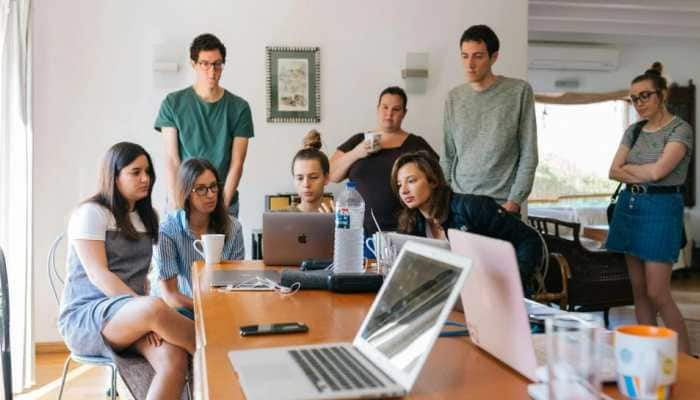Modi government owed demonetisation to nation: Nirmala Sitharaman
The Modi government "owed" demonetisation to the nation and it had to do it to eradicate black money menace and to bring hoarded cash back into the banking system, Union Minister Nirmala Sitharaman said today.
Trending Photos
Davos: The Modi government "owed" demonetisation to the nation and it had to do it to eradicate black money menace and to bring hoarded cash back into the banking system, Union Minister Nirmala Sitharaman said today.
Speaking at a panel decision at WEF on India's Time to Transform, she said it may sound 'propagandist' but one needs a strong and courageous leadership to take such a bold step.
On why government felt it was necessary to do the demonetisation, Sitharaman said it was part of the "electoral promise we made to check the black money menace".
"Right after coming to power, we started with setting up the special investigation team, came out with scheme for declaration of undisclosed money, tightened tax treaties with different countries to check round tripping of money. We took all these steps.
"This step of demonetisation was absolutely necessary.... 87 per cent of our economy was informal and only in cash-driven segments where money would not go to banks ...Only about 50 lakh people pay tax and all others who file the returns do not file any tax," she said.
"Can we survive if this kind of tax to GDP ratio continues .... We had to do it, we owed it to the country and we do not regret it," Sitharaman said.
"Even if it sounds propagandist ... You need a strong and courageous leadership to take such a bold step," she said.
The panel discussion, on theme of India's turn to transform, also discussed the fight against corruption and black money including through the recent demonetisation move.
In the same panel, Kenneth Rogoff said the same step could have been done in a more systematic manner.
On why it could not have been done with more public planning, Sitharaman said it could have been done but Indians are "smart" and they would have "sensed" it and people could have stashed the money somewhere.
SBI Chief Arundhati Bhattacharya said what was amazing that there were huge crowds outside banks but still there was no riot or any loss of life and the fact is nobody took law and order into his hands is amazing.
"I receive complaints of misbehaviour otherwise everyday but this was one period when there was no single complaint. This was a different feeling and I don't know how it came around," Bhattacharya said.
She agreed that psychologically people agreed with the move.
Bhattacharya said queues are a thing of past in urban areas though a few are still there in some rural areas.
"What the problem really is, there were many small and medium businesses that were earning profit but were not paying tax. They feel their margins would not give them ability to carry out business post this and they are worried".
"This is one India where we will need to convince them that they come into the tax net if they are earning enough for paying taxes," she said.
From 2006 and 2016, the portion of high value notes went up considerably to 86 per cent, she added.
Sitharaman said no part of the country faced any problem because the ministers and officials were moving around the country to take stock of situation and to take necessary measures throughout this 50-day period.
"I am absolutely shocked and I pay my respect to my fellow citizens for going through the hardship and be part of this exercise," she added.
Argentina's central bank governor Sturzenegger said they have been thinking about such a step for quite some time, that is to phase out high value notes, and he admires India for taking this bold step.
Regarding Argentina, he said, there was also a problem of security and robbery, because of which they have been thinking about it. Besides, they were also concerned about the high costs attached to printing of currency notes and the current system was subsidising cash.
"About three years ago, we took a quick decision regarding payment of bus systems when we phased out coins and asked people to use cards and the exercise was very successful leaving us with huge amount of coins that people were not willing to take.
"We also asked the banks to digitise money following which networks came into operation across various banks and it worked pretty well because of high penetration of smart phones," Sturzenegger said.
Now the next step is to push the people to use digital accounts, he said, while adding that Argentina is taking ideas from Sweden in this regard







)
)
)
)
)
)
)
)
)
)
